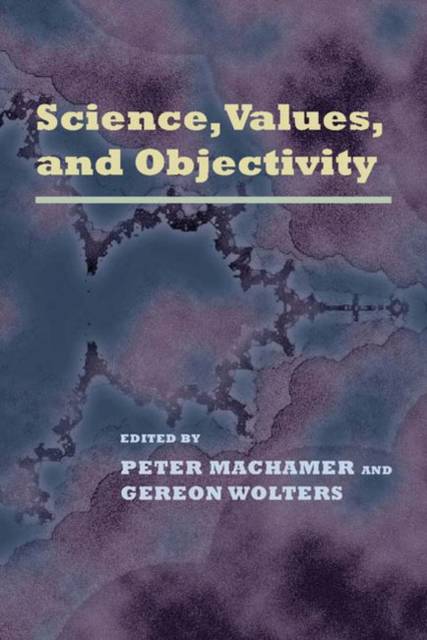
- Retrait gratuit dans votre magasin Club
- 7.000.000 titres dans notre catalogue
- Payer en toute sécurité
- Toujours un magasin près de chez vous
- Retrait gratuit dans votre magasin Club
- 7.000.000 titres dans notre catalogue
- Payer en toute sécurité
- Toujours un magasin près de chez vous
Science, Values, and Objectivity
75,45 €
+ 150 points
Description
Few people, if any, still argue that science in all its aspects is a value-free endeavor. At the very least, values affect decisions about the choice of research problems to investigate and the uses to which the results of research are applied. But what about the actual doing of science?
As Science, Values, and Objectivity reveals, the connections and interactions between values and science are quite complex. The essays in this volume identify the crucial values that play a role in science, distinguish some of the criteria that can be used for value identification, and elaborate the conditions for warranting certain values as necessary or central to the very activity of scientific research. Recently, social constructivists have taken the presence of values within the scientific model to question the basis of objectivity. However, the contributors to Science, Values, and Objectivity recognize that such acknowledgment of the role of values does not negate the fact that objects exist in the world. Objects have the power to constrain our actions and thoughts, though the norms for these thoughts lie in the public, social world. Values may be decried or defended, praised or blamed, but in a world that strives for a modicum of reason, values, too, must be reasoned. Critical assessment of the values that play a role in scientific research is as much a part of doing good science as interpreting data.Spécifications
Parties prenantes
- Editeur:
Contenu
- Nombre de pages :
- 328
- Langue:
- Anglais
- Collection :
Caractéristiques
- EAN:
- 9780822959472
- Date de parution :
- 07-01-11
- Format:
- Livre broché
- Format numérique:
- Trade paperback (VS)
- Dimensions :
- 152 mm x 229 mm
- Poids :
- 439 g






